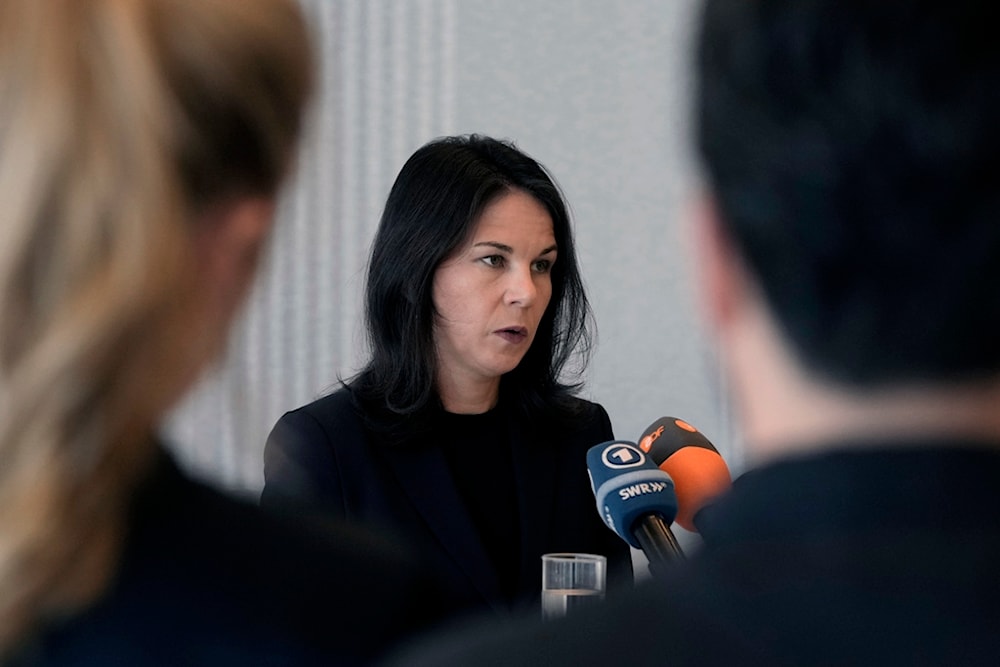German FM calls for increased defense spending beyond NATO's 2% target
The foreign minister urged European allies to not only increase their military budgets but also to bolster collaboration within the European defense industry through joint projects.
-

German Foreign Minister Annalena Baerbock, speaks during a news conference at the German Embassy in Dekwaneh, northern Beirut, Lebanon, Wednesday, October 23, 2024. (AP)
Germany's Foreign Minister Annalena Baerbock has called for European countries to expand their defense budgets beyond NATO's long-established 2% spending target, citing the growing security challenges facing the continent.
Speaking at the SZ Economic Summit in Berlin, Baerbock said that the 2% guideline, which NATO members commit to allocating from their GDP for defense, "will no longer be sufficient in our current situation."
The foreign minister urged European allies to not only increase their military budgets but also to bolster collaboration within the European defense industry through joint projects.
"We must think big about investments in European security and make them big," Baerbock said, highlighting the need for a cohesive European approach to defense that could also strengthen relations with the United States and other transatlantic allies.
Germany Boosts Defense Spending
Germany is set to meet NATO's 2% defense target this year, following a substantial increase in military spending in response to Russia's special military operation in Ukraine.
The German government's renewed defense focus has been part of a broader shift across Europe, as many nations have reassessed their military capabilities and readiness since the onset of the Russia-Ukraine conflict.
Read more: Europe must boost defenses amid US foreign policy shift: Le Monde
Experts say that Baerbock's remarks resonate with ongoing European concerns about the long-term commitment of the US to NATO and European security.
These worries were reignited following Donald Trump's recent election victory, given his previous stance that the US was unfairly shouldering NATO's defense costs and his threats to withdraw from the alliance if other members did not increase their spending.
Trump's renewed influence in US politics has revived anxieties about NATO's stability and the need for Europe to take on a more self-reliant role in defense.

 2 Min Read
2 Min Read








